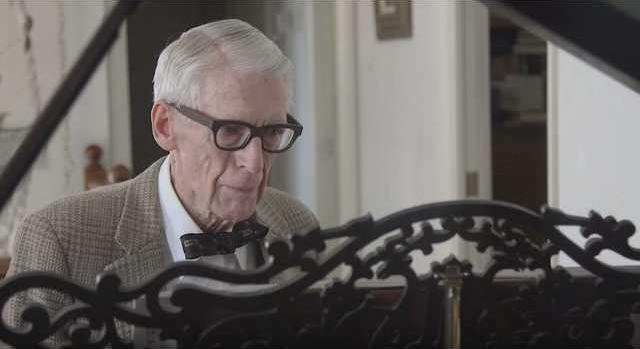If you consider Disney Pixar's film "Up" an emotional movie, count on experiencing the same tear-jerking sensation while watching "The Backwards Piano Man's" newest video.
In the video, YouTube star Jason Lyle Black's 80-year-old grandparents play "Married Life" from "Up" on the piano together.
The couple has played piano duets since first being married, according to the video description. Now, celebrating their 60th anniversary, one more piano duet seems more than fitting.
Black wrote the arrangement for his grandparents and the video.
My grandparents were very excited to be part of this video, Black said in the video description. "Ive loved their piano duets ever since I was a little kid, so this will be a family treasure for all of us.
The video was published on Monday, and at the time of publication had more than 700 views.
Watch the video on YouTube here.
In the video, YouTube star Jason Lyle Black's 80-year-old grandparents play "Married Life" from "Up" on the piano together.
The couple has played piano duets since first being married, according to the video description. Now, celebrating their 60th anniversary, one more piano duet seems more than fitting.
Black wrote the arrangement for his grandparents and the video.
My grandparents were very excited to be part of this video, Black said in the video description. "Ive loved their piano duets ever since I was a little kid, so this will be a family treasure for all of us.
The video was published on Monday, and at the time of publication had more than 700 views.
Watch the video on YouTube here.








